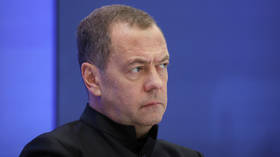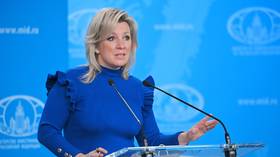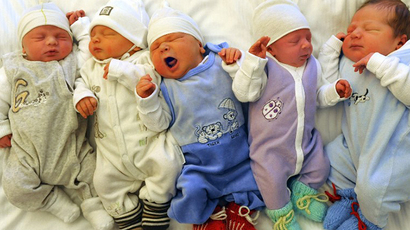‘Time bomb’: Aging population may explode global economy by 2050
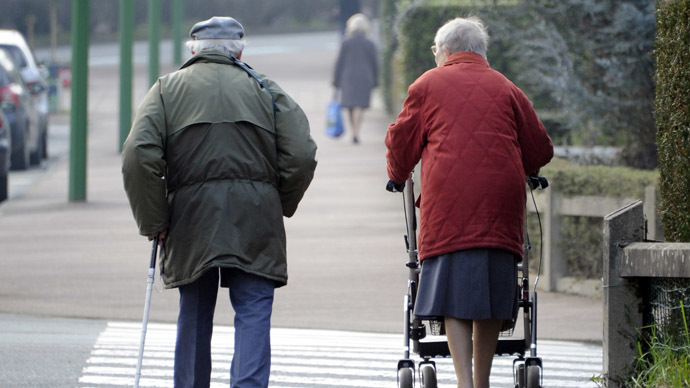
The number of people over 60 years old has doubled in the past 30 years and is expected to grow at the same pace by 2050. Increasing pension payments at a time of massive layoffs could result in an unsupportable burden for the world’s economies.
By the middle of the century more than 3 million people will be older than one hundred years, says the business daily RBC, quoting a United Nations report. Today the number of 100-year-olds is about 300,000.
Improved quality of health care, intensive developments in medicine, expanding access to education and economic well-being make a longer lifetime possible. But while mankind may rejoice in the opportunity of long-life, the aging population brings new challenges.
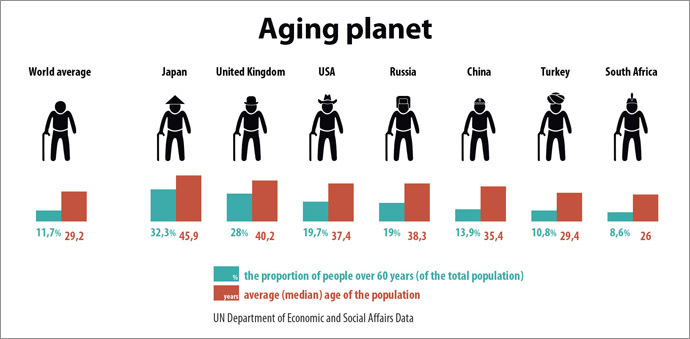
Economically, a growing number of the elderly people could result in another fiscal collapse for developed countries, as increasing pension payments weigh on local budgets.
In the US the federal program to provide health insurance and special care accounts for more than 10 percent of GDP, RBC data shows. In Europe pension costs comprise about 13 percent of GDP.
The ongoing crisis makes the burden extra heavy, as growing unemployment means less taxes for local budgets – a reserve for pension payments.
Among emerging economies, China is ‘aging’ faster than others. By 2050 people above 65 years will make up a quarter of the Chinese population, or 480 million. "This is a real time bomb," says RBC, quoting the head of the Center for State Policy Brookings-Tsinghua Wang Feng.
The maternity rate doesn’t inspire either, because now it stands at about 2 children for every Chinese woman, which compares to almost 6 back in the 80’s, when the government launched its one-child policy. Such a decrease is a serious threat to China’s key competitive advantage – an abundant and cheap workforce. This whopping manpower of export-oriented China has been the main driver behind China’s rapid growth over the past three decades.
Russia isn’t an exception to the global aging problem. The elderly make up a fifth of all Russians, with the ratio expected to go above 28 percent by 2030, RBC quotes official forecast. Among the remedies offered so far by the country’s authorities is raising the pension age, which is deeply unpopular with Russians.
In Russia women retire at the age of 55. Russian men retire at 60, while their life expectancy is just over 62 years, the shortest in Europe.


